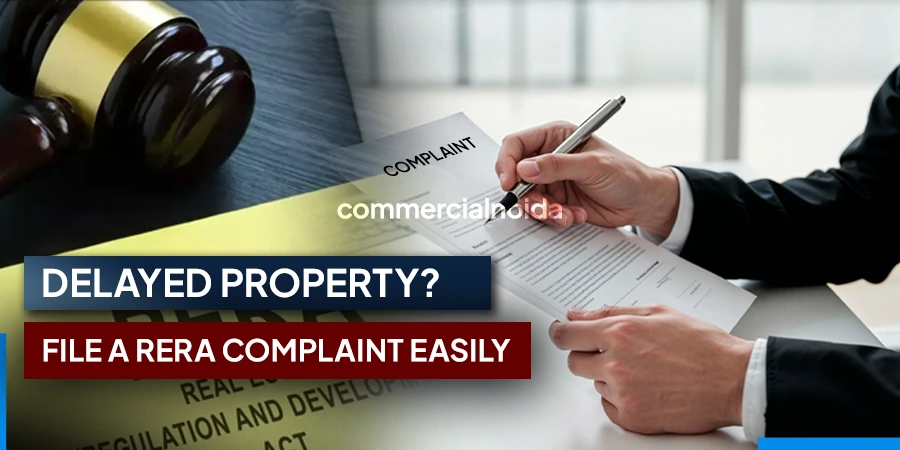What Happens When You Inherit Property? Tax Implications Explained

Inherited Property Is Tax-Free—But Here's How You're Still Taxed
There are many types of taxes associated with property transfers. But have you ever wondered what happens when you inherit a property? Is the transfer of ownership taxed in that case as well? And what laws and legal procedures govern such situations?
In today’s blog, we will simplify the taxation process involved in inheriting property from a family member and answer all related questions.
What does it mean to inherit a property?
Whenever a person passes away, their property is transferred to their legal heirs—typically blood relatives such as the son, daughter, spouse, etc.—either through a will (a written document that specifies who will receive the property) or according to the laws of succession.
Inheritance of ancestral property is treated differently, and property can also be inherited in cases of joint ownership or if someone is named as a beneficiary.
If there is no will or nominee, the inheritance is carried out based on the Hindu Succession Act, 1956, or the Indian Succession Act, 1925, depending on the individual's religion and applicable personal laws.
For instance, if a man dies without a will, his property will be inherited by his son, daughter, and wife as per the succession laws. This process is referred to as inheriting property.
Do you have to pay an inheritance tax?
In India, there's good news for heirs—the estate tax on inheritance was abolished in 1985.
Currently, there is no inheritance tax imposed on movable or immovable assets. This means you don't have to pay taxes immediately when you receive property, whether through a will, nomination, or joint ownership.
That's the good news, but you are not exempt from all tax liabilities. Let us understand the tax implications for inheritance.
What are the Tax Implications for Inheritance?
The tax exemption will not be available in these two scenarios:
When you decide to sell it
The Transfer of Property Act, 1882, dictates that you are liable to pay a tax on the profit you earn when you sell an inherited property. A Long-term Capital Gains Tax or a Short Term Capital Gains Tax is levied on your real estate property, depending on how long you own it.
How long it was owned
If the total ownership period (previous owner's time + your time) is more than 36 months, than a Long-term capital gains tax applies. This tax is usually at a lower rate. But if you and the previous owner together have owned the property for less than three years, then a higher rate of tax is levied, which is known as the Short-term capital gains tax.
Calculating your profit
The key thing to remember is that you are taxed on the profit and not the full sale amount. You can calculate this profit by deducting the purchase price (indexed/inflated cost for the previous owner) from the selling price.
Remember to adjust the purchase price according to the inflation; i.e., the indexed price should be used while calculating your profit. Don't worry, this is a good thing because if your profit is low, the tax payable will also be lower.
Income from inherited assets
According to the Income Tax Act, 1961, if you decide to keep the property you have inherited, then you are liable to pay taxes on the income it generates. Regular Property tax is payable on your property based on the Gross Annual Value (expected rent of 12 months).
For example, if your property has the potential to generate income of about Rs. 30,000 per month, then at the end of the year, you will pay tax on this income. While filing the ITR, don't forget to research deductions to relieve your tax burden.
Saving Tax on Inherited Property in the Above Scenarios
With proper knowledge and planning, you can honour your inheritance by managing it responsibly while minimizing unnecessary tax liabilities. And there are legitimate ways to reduce or avoid this tax if you reinvest the money into another home or specific government bonds. Let's look into it:
Buy/build another house
If you buy another house within two years of selling it or you build your new house within three years, you will not have to pay the long-term capital gains tax. The best part is that you only have to worry about investing the profit from the sale and not the total value of the sale transaction.
Invest in specific government bonds
Invest in REC (Rural Electrification Corporation Ltd) or NHAI (National Highways Authority of India) bonds within 6 months of the sale. A maximum tax benefit of up to 50 lakhs can be claimed.
Self-Occupy the house
You can even register your property under self-occupancy if you don't already own such a property and save significantly on the annual property tax.
Conclusion
Understanding inheritance tax rules in India doesn't have to be complex. Simply put, you don't have to pay an inheritance tax, but your property is taxed in both scenarios – when you keep it or sell it.
You should plan and consult a professional while making decisions about your inherited property. Take time to learn about your specific taxation situation and stay up to date as tax laws evolve. With proper knowledge and planning, you can manage your inheritance responsibly and at the same time reduce your tax burden.


























































































































.webp)

































































































.webp)
















































































.webp)
































































































